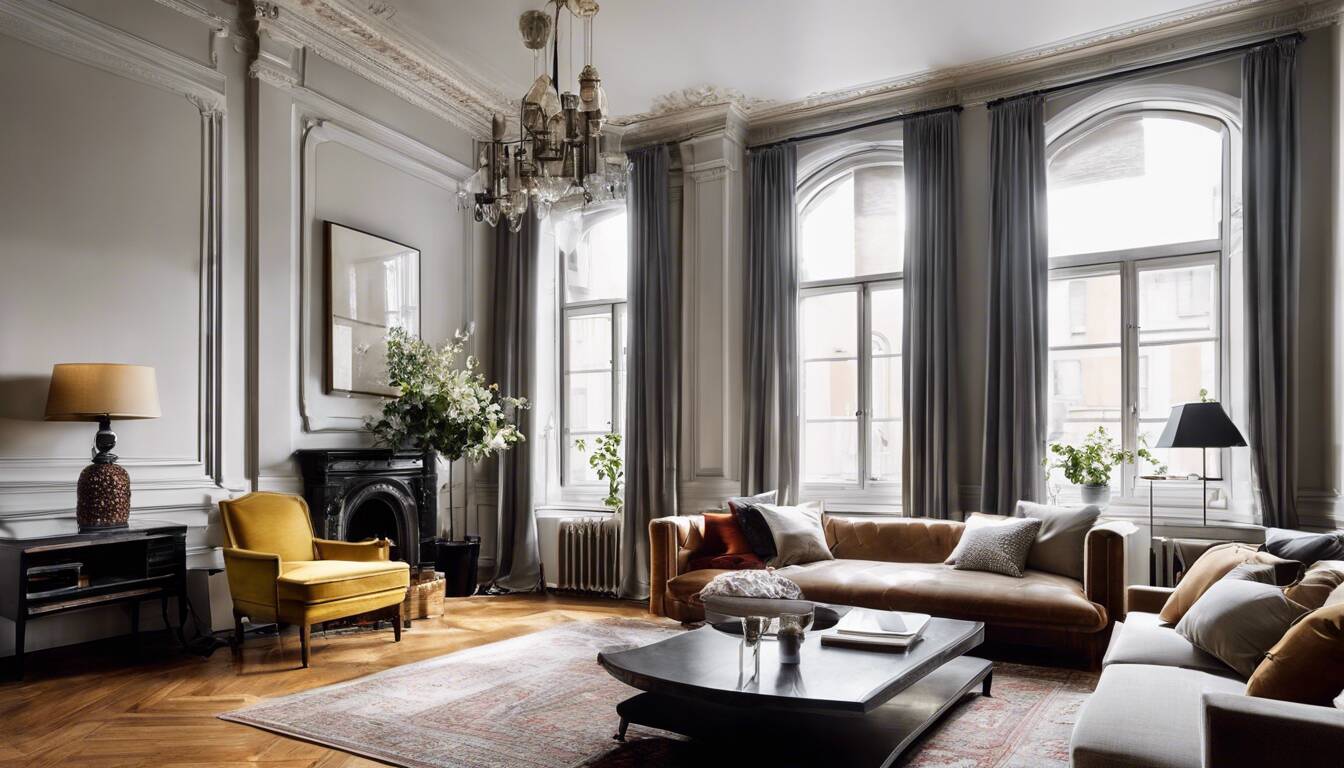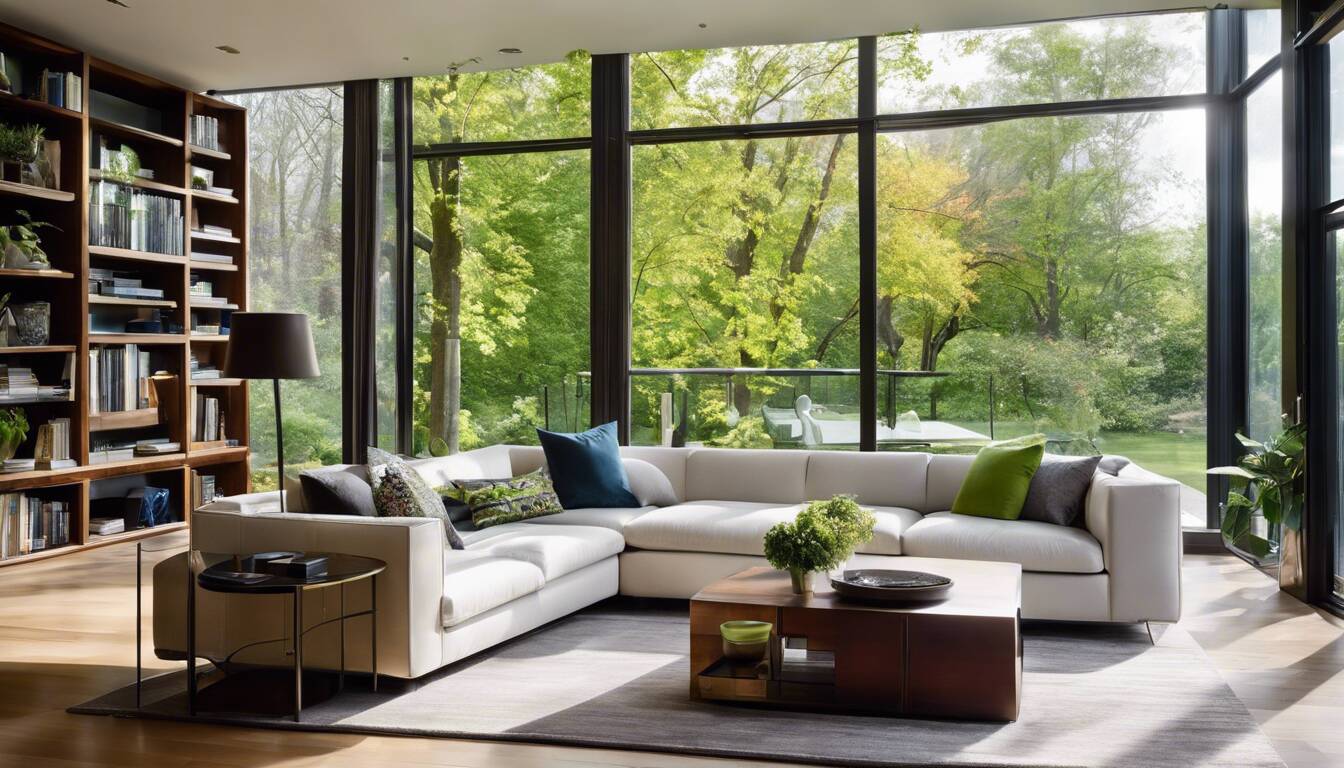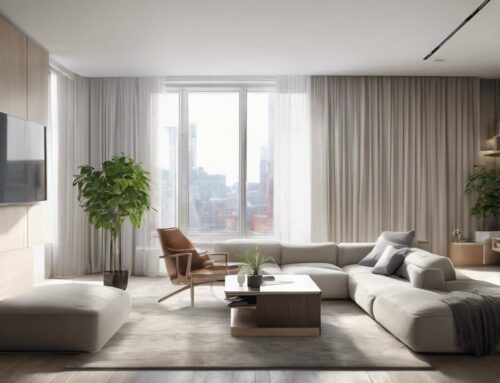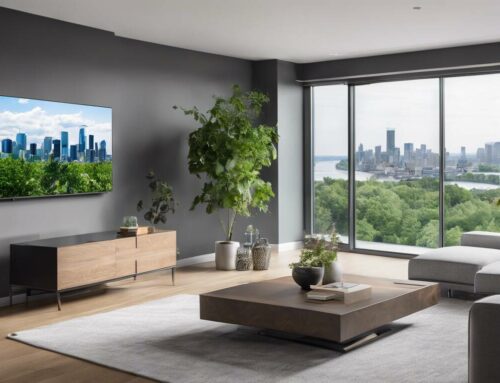February 12, 2024
The Importance of Ventilation in Montreal Homes

Air quality within a home is greatly influenced by its ventilation system – a fact that gains significance amidst Montreal’s varied climate. Our indoor air, if not well managed, can become a hotbed for respiratory issues, allergies, and myriad other health complications, often causing more frequent trips to the hospital. Interestingly, Montreal’s extreme weather elements – biting winters and muggy summers – make good ventilation not just about health, but also about comfort. It’s safe to say, a well-ventilated home in Montreal carries more weight than you’d think.
Ventilation is crucial in Montreal homes to ensure proper air circulation, reduce indoor air pollutants, and maintain a healthy indoor environment. By promoting good ventilation practices, homeowners can mitigate issues related to indoor air quality and create a comfortable living space for their families.
The Impact of Air Quality on Health
Indoor air quality often gets overlooked, but it plays a critical role in our overall health, especially in areas like Montreal where extreme weather can limit outdoor ventilation. Poor air quality doesn’t just affect how comfortable our homes are; it directly impacts our well-being. The air we breathe indoors can carry harmful pollutants, allergens, and irritants, contributing to an array of health concerns.
Respiratory issues are one of the most common health problems linked to poor air quality. Contaminants such as mold spores or pet dander can trigger asthma symptoms or worsen existing conditions. Even if you don’t have asthma, exposure to these indoor pollutants can cause coughing, wheezing, and shortness of breath.
Moreover, allergies can be exacerbated by indoor air pollution. Dust mites, pollen, and other indoor allergens thrive in poorly ventilated spaces. When we’re constantly exposed to these allergens, it can lead to sneezing, congestion, itchy eyes, and sinus irritation.
Consider the case of Montreal’s extreme weather – during harsh winters when people spend more time indoors with closed windows and limited fresh air circulation, these allergens are more likely to build up and cause discomfort.
According to the Montreal Public Health Department, air pollution is associated with a rise in hospital visits for respiratory and cardiovascular issues. This means that poor air quality isn’t just a matter of comfort; it’s a real public health concern.
Now, let’s discuss the long-term effects. Regular exposure to indoor air pollutants like Volatile Organic Compounds (VOCs) emitted from motor vehicles, paint, and household products can lead to chronic respiratory problems and even increase the risk of developing lung cancer over time.
In fact, the World Health Organization reports that 4.2 million premature deaths globally occur every year due to ambient (outdoor) air pollution. Additionally, 3.8 million premature deaths are caused annually by household exposure to smoke from dirty cookstoves or fuels.
As we can see, the link between air quality and health is well-documented. It’s not just an issue of daily comfort; it’s a matter of long-term well-being. So, ensuring good indoor air quality is vital for maintaining a healthy environment in our homes.
Understanding the crucial role of indoor air quality sets the stage for delving into effective strategies to improve ventilation in Montreal homes.
Fundamentals of Montreal Home Ventilation
Living in Montreal means experiencing varied weather throughout the year – from freezing cold winters to humid summers. As a result, homes need balanced ventilation systems to ensure comfortable indoor conditions, regardless of the external climate. Ventilation isn’t just about keeping fresh air flowing; it’s also vital for regulating indoor humidity levels and air quality. Now, let’s unpack the essential elements of Montreal home ventilation and why it’s crucial for maintaining a healthy living environment for you and your family.
Understanding Balanced Ventilation
In Montreal’s climate, the concept of “balancing” ventilation is particularly crucial. Properly balanced ventilation systems control both humidity and air quality by ensuring a continuous inflow of fresh outdoor air while simultaneously exhausting stale indoor air. This exchange not only replenishes oxygen levels but also regulates moisture, preventing excess humidity that can lead to mold growth and discomfort.
The Role of Humidity Control
Montreal’s cold winter climate can lead to dry indoor air due to heating systems, while the humid summer months can introduce excess moisture. Both scenarios can create discomfort and health concerns. Proper ventilation controls indoor humidity levels, helping to mitigate the impacts of extreme temperatures while preventing various issues such as mold growth, condensation, and respiratory problems associated with poor air quality.
Centralized vs. Decentralized Ventilation Systems
Centralized ventilation systems are designed to serve an entire dwelling, offering comprehensive control over air movement and filtration. In comparison, decentralized systems provide localized control within specific zones or rooms, offering more targeted solutions. Understanding the differences between these approaches is essential when considering which system best suits your home’s unique needs.
For example, if your basement tends to be more damp than other areas of your home, a decentralized system might be more effective in addressing this specific concern. On the other hand, a centralized system may be better for ensuring consistent overall air quality throughout the entire house.
Importance of Regular Maintenance
Regardless of the type of ventilation system installed in your home, regular maintenance is key to its effectiveness. Filters should be changed regularly, ducts should be cleaned periodically, and any mechanical components should undergo routine inspection by a professional. Neglecting maintenance compromises the system’s efficiency and poses potential risks to indoor air quality and overall comfort.
In sum, understanding the fundamentals of Montreal home ventilation is essential for creating and maintaining a healthy living environment conducive to thriving year-round—even in extreme weather conditions common to the region. Balancing ventilation ensures optimal indoor air quality and humidity levels, contributing significantly to the health and well-being of occupants. Navigating the maze of health-promoting practices within our homes brings us face-to-face with another critical component – the imperative need for fresh air.
The Need for Fresh Air

Imagine your house is like a closed jar that you can’t open. Over time, the air inside the jar becomes stuffy and filled with things like dust, odors, and potentially harmful substances. The same thing happens in your house when it’s sealed up tight.
This issue gets even bigger in places like Montreal where winters can be long and cold. The windows and doors stay shut to keep out the freezing air. It’s cozy and comfortable indoors, but that means the same air gets recycled over and over, without anywhere to go or anything new coming in.
Some might think that sealing a home tightly can help keep out external pollutants, but what they don’t realize is that it also traps indoor pollutants and reduces the oxygen level in the air. This can lead to health problems such as headaches, dizziness, or fatigue due to inadequate ventilation.
By letting fresh air circulate through your home regularly, you can dilute indoor air pollutants and restore a healthy balance of oxygen in your living space. This not only helps maintain a comfortable environment but also supports good health for you and your family.
For instance, cooking or cleaning with certain products can release volatile organic compounds (VOCs) into the air, leading to poor indoor air quality. Bringing fresh air inside helps to flush out these VOCs, creating a healthier living environment.
Not only does fresh air dilute indoor pollutants, but it also helps prevent humidity imbalances that could lead to mold growth and degradation of building materials. Balancing ventilation with effective sealing strategies is essential for maintaining both indoor air quality and structural integrity.
Ventilating your home properly is a key component in ensuring good indoor air quality—by allowing fresh air to circulate, you can combat the negative effects of trapped indoor pollutants and maintain a healthy living environment.
From understanding how proper ventilation impacts indoor air quality, let’s now shift our focus to examining the sources of indoor air pollutants and their impact on our health in the next section.
Air Pollutants and Their Origins
Air pollution is a real puzzle at times. Invisible to the naked eye, it can cause a wide array of problems. In Montreal, much like in any urban area, air pollutants are generated by a variety of sources. Vehicle emissions are one of the primary instigators. When we drive our vehicles, they release tiny particles and gases into the air, contributing to pollution. Although cars and trucks have significantly enhanced our lives by offering convenience, they also bring along harmful fumes.
Industrial activities also serve as significant contributors to air pollutants. Manufacturing plants emit various chemicals and noxious odors that can seep into our homes and workplaces, negatively impacting the quality of the air we breathe. Though not immediately noticeable in our daily lives, this gradual accumulation takes its toll on our indoor environment.
It’s essential to consider these facts: not all pollutants originate from outside sources—some stem directly from within our own homes.
Consider what happens when you’re cooking – grease smoke or fumes scatter into your kitchen. These can mix with other household products such as cleaning chemicals and paints creating volatile organic compounds (VOCs). These can lead to respiratory problems and eye irritation if not properly circulated.
Additionally, everyday household items play a role in indoor air pollution too. Things like mattresses releasing chemicals over time or scented candles dispersing various pollutants into the air can degrade indoor air quality. Even moderate temperature cooking (e.g., frying) releases VOCs that impact your health.
Understanding where these pollutants come from is crucial because it enables us to take necessary steps to address them. As urban dwellers, being aware of potential sources empowers us to make informed decisions about maintaining indoor air quality.
Awareness lays the foundation for change. Understanding the origins of air pollutants allows us to pave the way for enhancing and safeguarding the quality of air in our living spaces.
Maintaining Ideal Home Temperature
When it comes to keeping your home at a comfortable temperature in Montreal’s challenging climate, proper ventilation is essential. Harsh winters and humid summers can make the indoors feel stuffy or too cold, creating discomfort. Imagine returning from the chilly outdoors to a cold, unwelcoming house; alternatively, coming back from sweltering heat to a suffocating indoor atmosphere. With the right ventilation setup, this discomfort can be alleviated.
Ventilation systems are crucial for redistributing heat and maintaining a consistent, comfortable indoor climate. During the winter, it’s important to ensure that warm air circulates evenly throughout your home, not only for comfort but also to prevent mold and mildew growth in moist, unventilated spaces. Similarly, in the summer, effective ventilation can help mitigate humidity and keep your home feeling cool and refreshing.
One reliable way to gauge your home’s ventilation efficiency is by observing how comfortable you feel indoors during different seasons. If you find yourself shivering excessively in the winter or constantly fanning yourself in the summer, it might be time to reassess your home’s ventilation needs. Comfort in your own home is something that shouldn’t be compromised on!
For instance, fresh air introduced by a well-designed ventilation system helps regulate the concentration of indoor air pollutants, promoting a healthier indoor environment for occupants. Additionally, strategic cross-ventilation methods can help lower indoor temperatures naturally without solely relying on energy-demanding mechanical air conditioning.
Moreover, modern ventilation systems come equipped with features such as heat recovery units that reclaim heat from outgoing air and use it to warm incoming fresh air during the winter months. These innovations not only improve comfort but also lead to significant energy-saving benefits.
So, when it comes to maintaining a comfortable home temperature in Montreal’s varied climate conditions, proper ventilation isn’t just a luxury—it’s an absolute necessity.
With the crucial role of ventilation for maintaining ideal indoor temperatures explored, let’s now shift our focus to understanding the benefits and options for upgrading ventilation systems in Montreal.
Benefits and Upgrading Ventilation Systems in Montreal
Living in a city like Montreal means experiencing various weather changes throughout the year. From chilly winters to warm summers, the shifting seasons can significantly impact indoor air quality and comfort levels. Efficient ventilation systems transform living spaces into havens from extreme temperatures, allergens, and pollutants while offering numerous advantages.
When you upgrade your home’s ventilation system, one of the most significant improvements is better control over temperature and humidity. As you know, Montreal’s climate can be unpredictable—ranging from frigid winters to hot, humid summers. A modern ventilation system provides precise control over these factors, ensuring that your home remains comfortable year-round.
Improved indoor air quality is another key benefit of upgrading your ventilation system. With enhanced air circulation and filtration, allergens, dust, and pollutants are more effectively removed from your home, creating a healthier living environment for you and your family.
Reduced energy costs are another perk of upgrading your ventilation system. By investing in an energy-efficient system, you can lower your overall energy consumption, resulting in cost savings over time—an important consideration with rising energy prices.
Professional air quality testing services play a crucial role in identifying specific needs for homes and recommending tailored ventilation solutions. By conducting thorough inspections and tests, experts can pinpoint problem areas and offer customized solutions that suit the unique requirements of Montreal homes.
The advantages of upgrading your ventilation system are clear: more comfortable living conditions, improved indoor air quality, reduced energy costs, and overall enhancement of your home environment. It’s an investment not only in the value of your property but also in the well-being of its occupants.
For anyone residing in Montreal or contemplating moving there, it’s crucial to recognize the pivotal role ventilation systems play in ensuring high indoor air quality and comfort throughout the year. Get in touch with our dedicated team at Air Quality Testing to enhance air quality by acquiring professional ventilation solutions.



